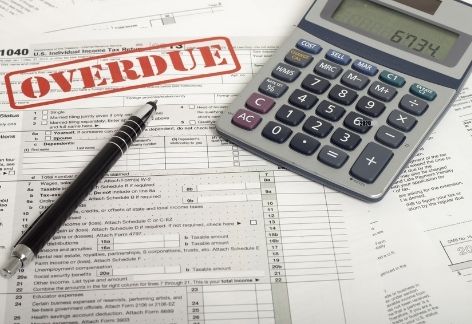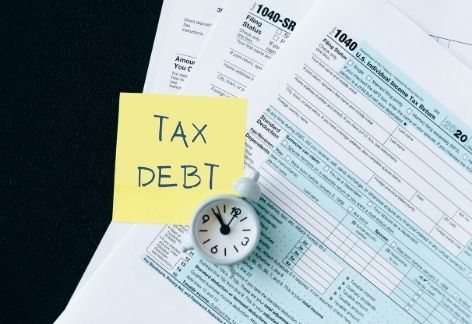Being audited by a tax authority is probably one of the last things a business wants to endure – but tax audits can and do happen, especially in industries where sales and use tax intricacies make mistakes much more likely.
As we live in the information age, most tax audits are triggered automatically by digital systems that compare and analyze financial data across different sources. Gone are the days where individual humans pore over returns and information to identify mistakes – machines do most of the filtering today. But it’s the humans that come in to investigate and get to the bottom of the issue.
Just as the IRS can audit an individual for omitting income on their tax return, most state tax authorities will go after your business for failing to comply with sales and use tax laws and regulations.
Some of the most notoriously aggressive states when it comes to sales tax audits and notices include Maine, Illinois, California, Massachusetts, Wisconsin, and Washington. Understanding how and why sales tax audits are triggered – and how to best avoid them – can save your business a lot of grief and potential penalties.
What is a Sales Tax Audit?
A sales tax audit is a formal investigation into a business’ accounting and financial records to ensure that the business paid the right amount of sales tax owed on various transactions. For example, if your state demands sales tax on the acquisition of medical supplies, then it will want to ensure that the tax paid corresponds to the amount of supplies ordered within the tax year.
Any discrepancies between what your business has paid, and its actual sales tax liability will trigger a sales tax audit.
Because there is no federal sales tax in the United States, sales tax audits are generally only performed by state tax authorities, usually titled the Department of Revenue or Tax Services.
When Do Tax Authorities Initiate a Sales Tax Audit?
Avoiding a sales tax audit is not always straightforward. Mistakes do happen, whether in the form of an accounting error or an order that just slipped by. If and when the authorities pick up on that mistake, the result is usually a nominal fine and the tax owed. But if the becomes systemic, or looks to be an indication of intentional fraud, state tax authorities may dig deeper and harder.
Because some industries have a harder time tracking sales and use taxes – especially if your business manages hundreds or thousands of transactions a month, deals with multiple different middlemen, and trades products across state lines or internationally – these industries are more prone to mistakes, and more likely to be audited.
Other industries that typically see more sales tax audits than usual are cash-operating businesses. These include liquor stores, gas stations, bars, restaurants, and grocers. In other words, you don’t really need to make a mistake to be audited – sometimes it’s basically an occupational hazard.
Finally, state tax authorities may audit you in connection with a different business, whether that business made a mistake or committed fraud. If you are somehow connected with a business currently being investigated by your state tax authority, there is a chance they may additionally turn their attention towards you. If you are found to have any discrepancies, it could significantly impact your reputation and operations. For example, a brand new five star review on your business’s profile could quickly be overshadowed by any issues that arise during the audit process. It’s crucial to maintain diligence in your financial records to foster trust and credibility in the eyes of your customers and regulatory bodies alike.
Additional Triggers for Sales Tax Audits
In addition to mistakes picked up by a computer system or the fact that your tax agency is worried you might be squirreling away some of your business’ cash profits, there are a few other behaviors that might land you in hot water, and a higher likelihood of a sales tax audit. These include:
- Regularly filing your state tax returns late.
- Your business recently restructured.
- Your business is newly formed.
- Your biggest customer or supplier is being thoroughly vetted.
- Someone at your company reported you to a tax authority.
Preparing for a Sales Tax Audit
Like IRS audits, most tax authorities tackle audits in one of two ways: remotely, or in-person. Your state tax authority may send you a few notices with specific instructions for the kind of information they need from you. When a case is more involved, they will send agents over to personally go through your financial information.
Here is what you might want to try before an auditor comes knocking on your door.
Consider a Pre-Audit
It pays to be prepared, even if that means exposing your own weaknesses. Consider hiring a specialized finance department or accountant to do a pre-audit on your business, to reveal what a thorough tax audit might reveal. Staying on top of payroll tax deadlines for businesses is crucial to avoid penalties that can disrupt your operations. By consulting with professionals knowledgeable about the latest regulations, you can ensure that your financial records align with government requirements. This proactive approach not only strengthens your fiscal standing but also gives you peace of mind during tax season.
This might buy you time to revise and amend existing returns and prevent an audit from ever being triggered to begin with.
Prove Your Exemptions
Certain transactions are exempt from sales taxes, but it can be difficult to prove that in retrospect without the proper documentation. Furthermore, certain transactions that you may believe to be exempt aren’t, in which case seeking confirmation is important.
Whenever you have a major transaction that is exempt from sales tax, go through the trouble of obtaining an exemption certificate. Examples of an exemption on sales taxes include resale, or exemptions based on who you are selling to (for example, a non-profit organization).
Work With Your Middleman
Marketplace facilitators can do everything from organizing the sale of your product with a different vendor to marketing the product. But how are sales taxes being handled with your marketplace facilitator?
It’s easy to assume that the middleman is taking care of everything for the commission they command but be sure. Are your marketplace facilitator agreements in compliance with current state tax rules?
Promptly Acquiesce to State Tax Authorities
Another way to minimize the risk of a sales tax audit is to be forthcoming with your state tax authorities, as well as generally well-prepared. If you file every return on time and don’t slack off on your tax duties, they may be more likely to pay attention to other, more offending businesses.
Your Audit Does Not Start Immediately
If you receive notice of an impending audit for your business, don’t panic. You still have time to figure out whether you’ve made a mistake, and deal with it via an amendment before the authorities penalize you during an audit.
It Pays to Be Organized
Invest in better documentation, especially if you have been audited before. It pays to be organized. It also pays to be prepared. A tax specialist like Rush Tax Resolution can help your business prep for the worst.
Contact Rush Tax Resolution for all of your Concerns Regarding Sales Tax Audits
Sales tax audits can be a daunting process for any business, but with proper anticipation, preparation, and risk reduction strategies, the process can be much smoother. Rush Tax Resolution is a company that specializes in helping businesses navigate these audits and minimize the impact on their operations. Our team of experts has years of experience in handling sales tax audits and has the knowledge and skills to help you prepare and respond effectively to any audit. Whether you need assistance with sales tax compliance, dispute resolution, or representation in front of tax agencies, Rush Tax Resolution is here to help. Contact us today to learn more about how we can help reduce the risk of a sales tax audit and protect your business.











